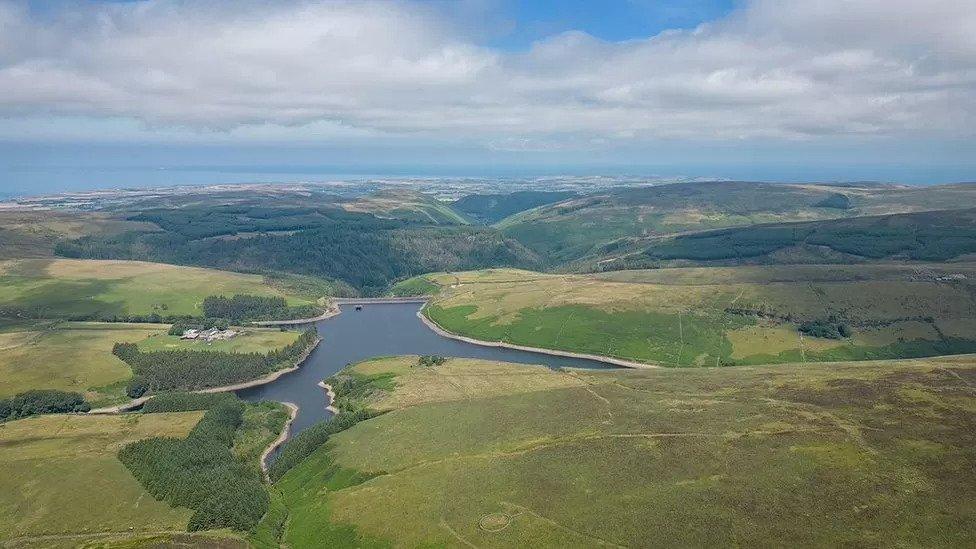Isle of Man water usage up 33% before hosepipe ban
- Published

Water stocks are now back up to 73% in Manx reservoirs
An upsurge in water usage and below average rain levels were behind the Isle of Man's hosepipe ban, the Head of Water at Manx Utilities (MU) has said.
Restrictions were introduced on 29 July before being lifted on Wednesday.
Gareth Patchett from MU said: "Normally customers use 30 million litres a day and it went up to nearly 40 million."
Met Office figures showed summer rainfall was down by almost 40% on average but heavy rain has helped to replenish the island's water stocks.
Mr Patchett said in July there was "practically no water coming into the reservoirs" but water usage fell by eight million litres a day once the restrictions were brought in.
'Heavy downpours'
Forecaster Adrian Cowin, has confirmed there's been roughly half a month of rainfall in the first week of September, which has been "very useful" for topping up water supplies.
"And we're expecting plenty of rainfall for the rest of the autumn," he added.
MU was the first water utility company in the British Isles to introduce a hosepipe ban this summer, when reservoir levels dipped to 63%.
The water company also saw an increase in the numbers of pipes burst because "pumping stations were going flat out".
After heavy downpours reservoir levels are now up to 73%, and despite still being 9% below average MU is "now in a position where if we have a dry autumn, we'll still be okay", Mr Patchett said.
"The problem was the amount of water being used... levels were dropping dramatically" he added.
"We think it was sprinklers."
The restrictions came with warnings of a fine of up to £2,000 for using a hosepipe to water a garden or fill a paddling pool.

Why not follow BBC Isle of Man on Facebook, external and Twitter, external? You can also send story ideas to IsleofMan@bbc.co.uk, external
Related topics
- Published6 September 2022

- Published29 July 2022

- Published26 July 2022
